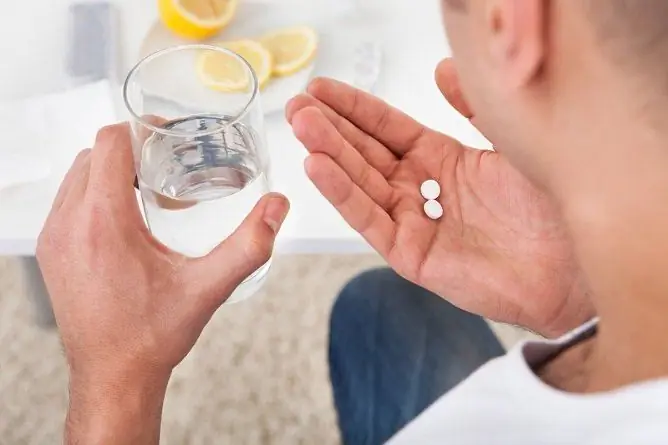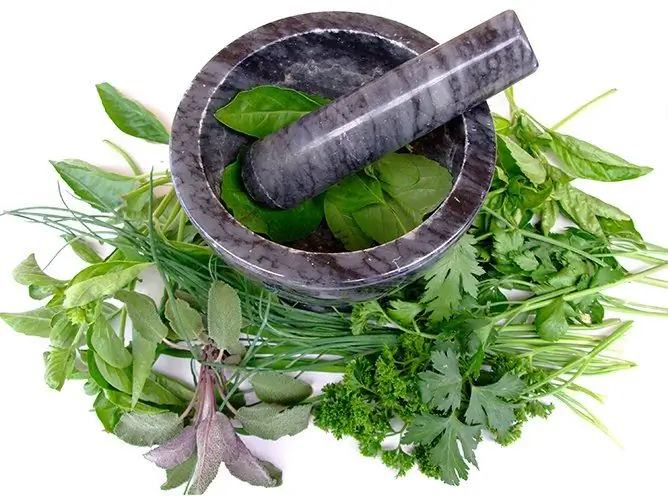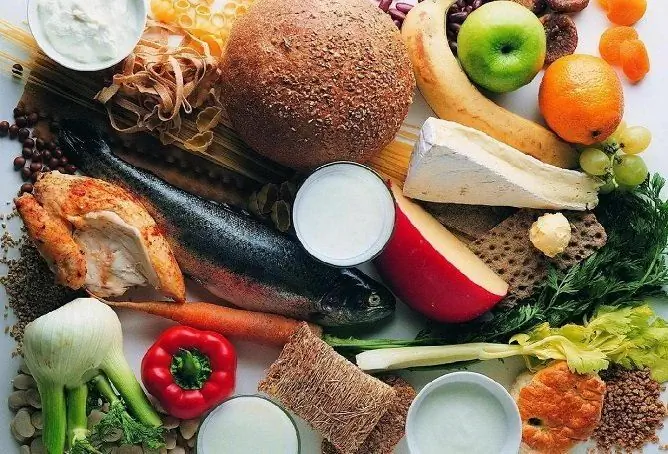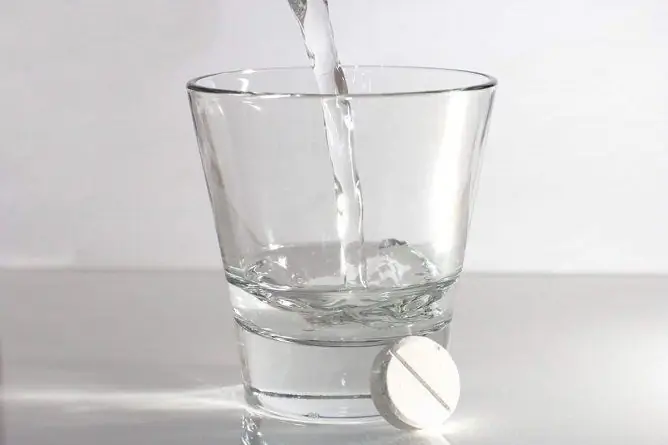- Author Rachel Wainwright wainwright@abchealthonline.com.
- Public 2023-12-15 07:39.
- Last modified 2025-11-02 20:14.
Pressure diuretics: Herbs and high pressure diuretics
The content of the article:
- Why take diuretics for high blood pressure
- Side effects and contraindications
-
Diuretic pills for pressure: a list with the names of drugs
- Thiazide diuretics
- Potassium-sparing diuretics
- Loop diuretics
- Combined diuretics
- Diuretic herbs for hypertension
- What foods have a diuretic effect
- Lifestyle changes as an important adjunct to therapy
- Video
Diuretics with pressure are used very often, as they allow you to quickly eliminate hypertension by reducing the volume of circulating blood. This same mechanism makes diuretics effective for intracranial pressure. However, they are not harmless drugs, together with the liquid they remove the trace elements necessary for the body to work, therefore, you should consult your doctor about how to drink such drugs.
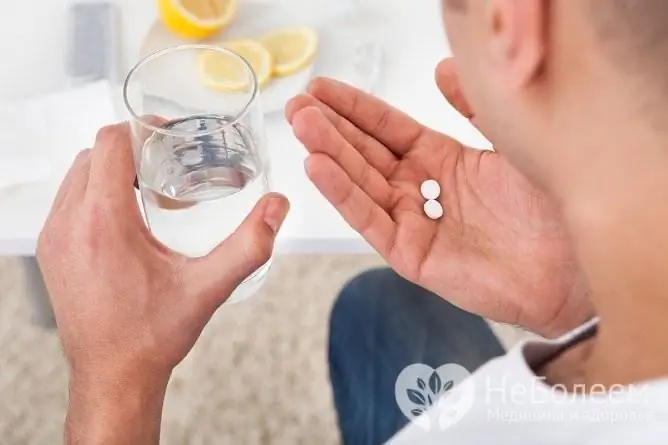
Taking any diuretics requires agreement with your doctor
Why take diuretics for high blood pressure
High blood pressure is caused by increased vascular tone. Under the influence of one reason or another, the vessels shrink, and the pressure in them increases. Diuretics, helping to remove fluid from the body, reduce pressure, and thereby help reduce the load on the heart, improve the general condition of the patient. However, they do not affect the root cause of the disease, namely the process that caused the increase in vascular tone, and, accordingly, do not eliminate it. Thus, diuretics, although very important in the treatment of high blood pressure, are only an ambulance, the so-called symptomatic therapy. That is why complex treatment is required for arterial hypertension.
During the entire course of diuretic therapy, the patient should be under medical supervision. All prescriptions should be followed exactly, the prescribed dosage should be followed, and the doctor should be informed of any changes in well-being so that he can adjust the dose or replace the medication.
Side effects and contraindications
Common contraindications for taking diuretic drugs are:
- prostate adenoma;
- urolithiasis disease;
- diabetes;
- overweight;
- individual intolerance to the components of the drug.
Diuretics are not prescribed concurrently with sleeping pills.
Possible side effects of diuretics include: drowsiness, dizziness, dry mouth, nausea, vomiting, diarrhea, sleep disturbances, exacerbation of gout, increased blood glucose concentration, heart rhythm disturbances, allergies, skeletal muscle spasms, convulsions, decreased libido …
Side effects when taking diuretic drugs are most often observed in case of non-compliance with the prescribed dosage or with self-medication.
Diuretic pills for pressure: a list with the names of drugs
Diuretic drugs are divided into several drug groups according to their active ingredients. The group affiliation of a particular drug is noted in the instructions for use.
There are several groups of diuretic tablets at elevated pressure. The most popular diuretics include thiazide, potassium-sparing, and loopback. According to doctors, such drugs are highly effective in moderate arterial hypertension.
Thiazide diuretics
A group of drugs that demonstrate effectiveness at the initial stages of arterial hypertension. The advantage of thiazide diuretics is their effectiveness even in small doses; they can be prescribed to elderly patients and taken once a day. Thanks to its prolonged action, it is possible to reduce the risk of hypokalemia, hyperlipidemia, and cardiac contractions.
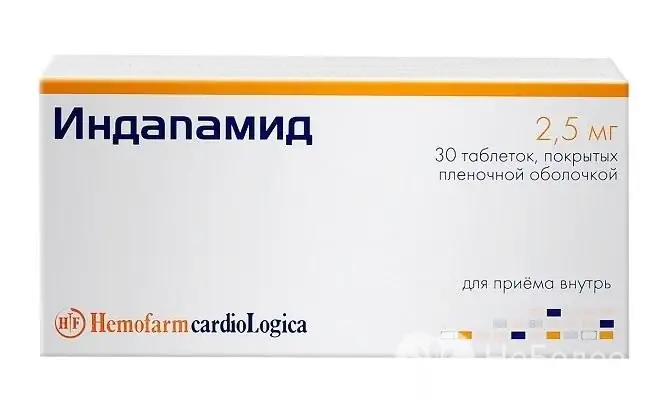
Indapamide is a thiazide diuretic
Among the main contraindications to the use of thiazide diuretics are violations of the liver and kidneys. Also, these drugs, as a rule, are not prescribed with a low potassium content in the blood, during pregnancy and lactation.
With prolonged therapy with thiazide diuretics, the patient develops tolerance, i.e., resistance to the drug. In such cases, they are replaced with diuretics of other groups.
This group includes Indapamide, Indap, Tenzar, Arifon, Diuril.
Potassium-sparing diuretics
A group of drugs that do not lower the level of potassium in the blood, promote the elimination of sodium and chlorine ions from the body.
A side effect is drowsiness, and with prolonged use, menstrual disorders in women and gynecomastia in men.
Potassium-sparing diuretics are contraindicated in hyperkalemia, urolithiasis, during pregnancy and lactation.
The most popular diuretic that does not excrete potassium is Veroshpiron. This drug is especially helpful in the presence of chronic heart failure. Other drugs in this group include Dekriz, Renial, Espiro, Eridanus.
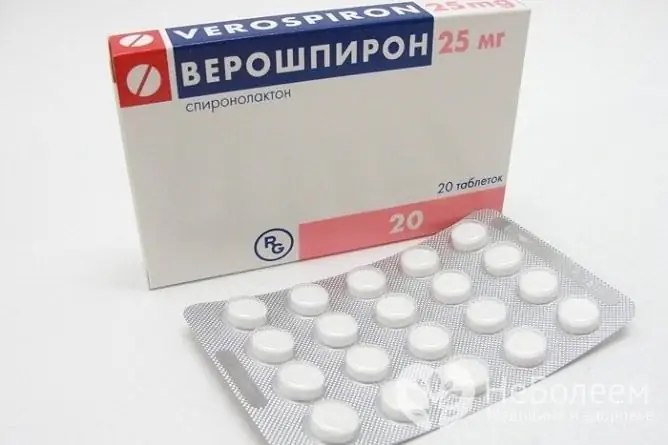
Veroshpiron is a potassium-sparing diuretic
Loop diuretics
Loop diuretics contribute to a rapid decrease in blood pressure, therefore, are prescribed when urgent elimination of hypertension is necessary. These drugs are also used for edema, heart failure.
Typically, loop diuretics are only prescribed for adults because they have a strong effect on the kidneys. To reduce the risk of side effects, drugs in this group are prescribed in a short course. When using them, it is necessary to regularly do blood and urine tests, as dehydration may develop and the content of uric acid in the blood may increase.
The most popular loop diuretics are: Diuver, which is suitable for the treatment of edema caused by congestive heart failure, Furosemide, Ethacrynic acid.
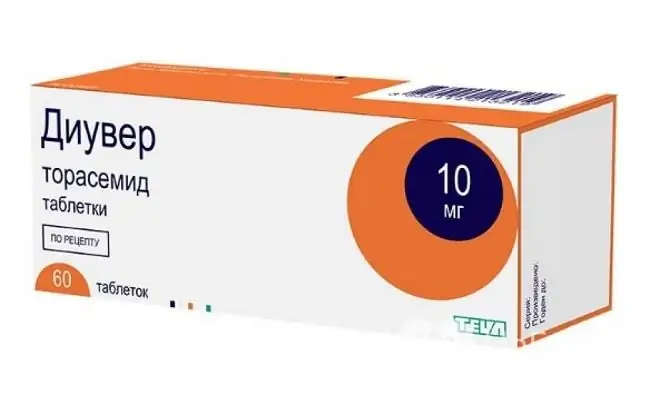
Diuver - loop diuretic
Combined diuretics
Combined diuretics are recommended for grade 2 and 3 arterial hypertension. As a rule, their use begins with a minimum dose, which is then slowly increased. Combined diuretics are often prescribed to patients who, for one reason or another, are not suitable for drugs of other groups.
This group includes: Amilozide, Diazid, Triamtel, Triampur compositum, Furesis compositum.
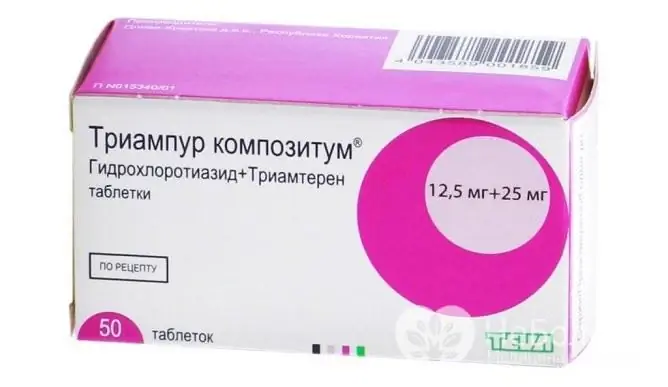
Triampur compositum - combined diuretic
Diuretic herbs for hypertension
In some cases, pharmacy diuretic tablets for pressure can be replaced with herbal remedies, but the following must be borne in mind - firstly, folk remedies cannot be accurately dosed, and secondly, they are less effective. In addition, it is a mistake to believe that herbal preparations are completely harmless. Many of them, just like pharmaceuticals, have side effects, for example, cause allergies.
Infusions of lingonberry leaves, bearberry, burdock root, blue cornflower have a diuretic effect.
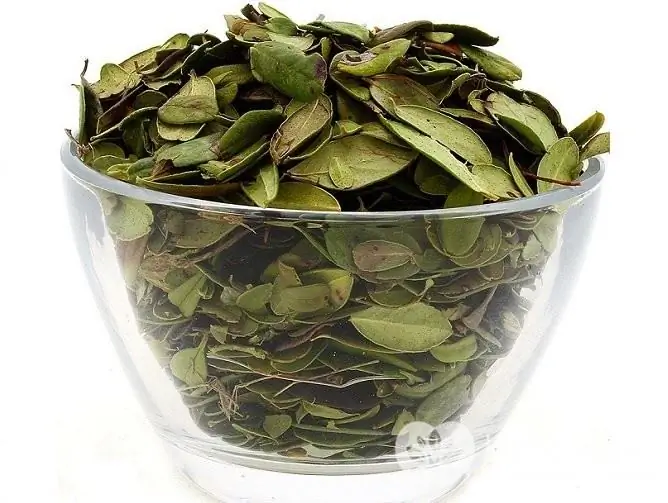
Lingonberry leaf preparations have a diuretic effect
Diuretic properties are possessed by a decoction of dill seeds, which also allows you to get rid of flatulence.
The composition of diuretic preparations often includes hawthorn and lily of the valley, which contribute to the elimination of sodium ions from the body. With tachycardia, motherwort and valerian are introduced into the collection, and with renal failure - hop cones. To improve the work of the cardiovascular system, walnut partitions, peppermint, oregano can be used.
To remove excess fluid from the body, an infusion of birch leaves is effective: 100 g of raw materials are poured into 0.5 liters of boiling water, infused for 7 hours, filtered and again infused until the precipitate falls. After that, filter it again, take ½ glass 3 times a day.
An infusion of birch leaves and oak bark also has a diuretic effect. For its preparation, the ingredients are mixed in a ratio of 1: 1, 100 g of the mixture is poured into 0.5 liters of boiling water, infused for 7-8 hours, filtered and taken ½ cup 3 times a day.
Rosehip tea is an effective diuretic and tonic. For its preparation, 2 tablespoons of rose hips are poured into 1 liter of boiling water, insisted in a thermos for 3-4 hours. The aromatic and delicious drink is drunk like regular tea, 3-4 cups a day at intervals of 3-4 hours.
What foods have a diuretic effect
Eating cranberries (berries or juice), strawberries, viburnum, chokeberry, beets, asparagus, parsley, eggplant and celery contributes to increased urine output. In the absence of contraindications, you can use freshly squeezed juice of carrots, beets, horseradish, citrus fruits.
Lemon and ginger have diuretic activity, so a lemon-ginger drink with a spoonful of honey can be very useful for hypertension.
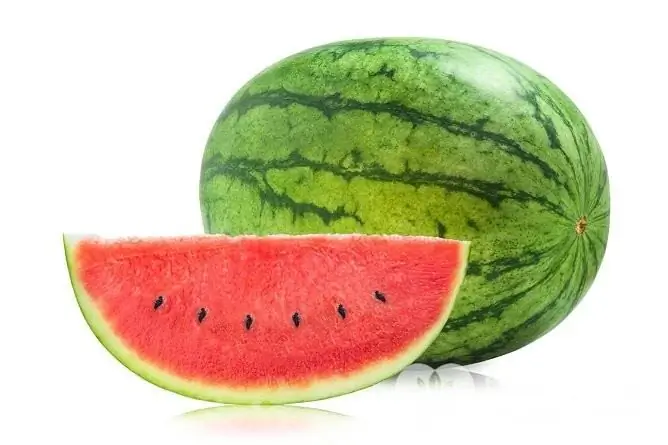
Watermelon is one of the strongest natural diuretics
Oats also provide some diuretic effect, it can be used in the form of porridge, muesli, jelly.
Excellent seasonal diuretics are watermelon (this applies only to fresh watermelon, salty ones, on the contrary, cause fluid retention) and melon.
Lifestyle changes as an important adjunct to therapy
Doctors refer to the main risk factors for the development of arterial hypertension as poor nutrition, insufficient physical activity, frequent stressful situations, and bad habits. Therefore, in case of arterial hypertension, the patient needs to revise his lifestyle in the direction of recovery - without this, any, even the most effective therapy will have only a temporary effect.
It is recommended to lead a moderately active lifestyle, quit smoking and drinking alcohol, sleep at least 8 hours at night, timely treat diseases that can lead to high blood pressure (kidney disease, cardiovascular system). A balanced diet should be adhered to, limiting table salt and high content of foods rich in potassium (tomatoes, potatoes, garlic, pumpkin, parsley, apricots, grapes, bananas, melons, etc.).
Video
We offer for viewing a video on the topic of the article.

Anna Aksenova Medical journalist About the author
Education: 2004-2007 "First Kiev Medical College" specialty "Laboratory Diagnostics".
Found a mistake in the text? Select it and press Ctrl + Enter.

